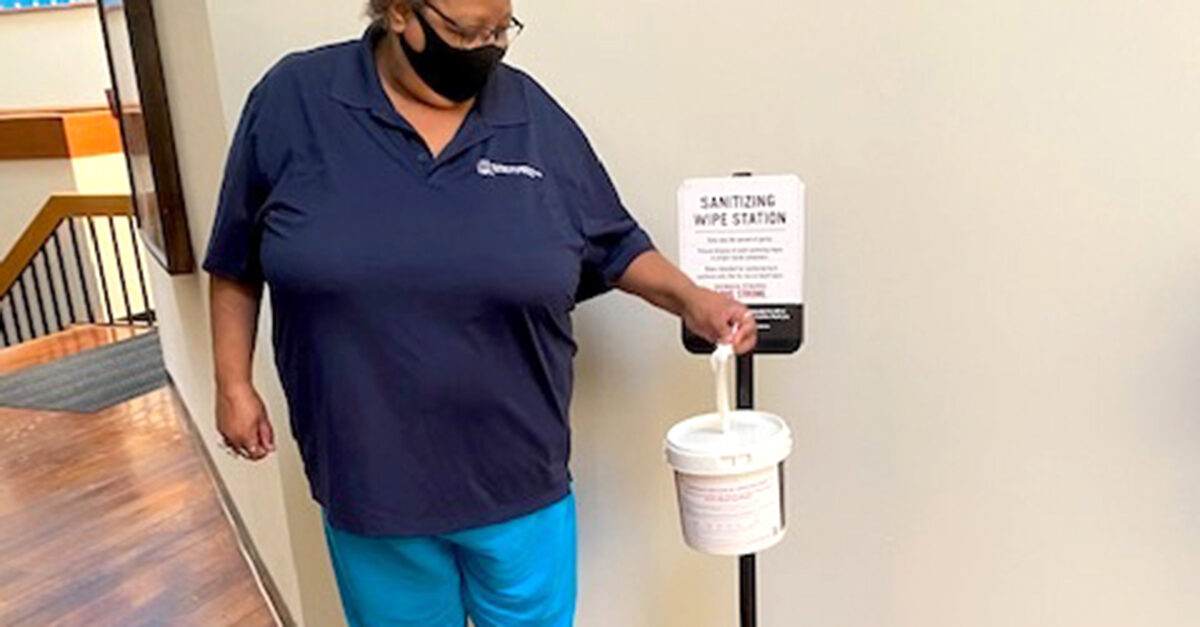During the beginning of the pandemic, hand sanitizers and disinfectant wipes were scarce as demand grew high for these cleaning products across the country. Many facilities, especially college campuses, had a difficult time finding a supplier as priority was given to hospitals, first responders, and long-term care facilities.
Some businesses decided to make their own hand sanitizers and others their own disinfectant wipes. The University of Georgia (UGA) was no exception. In spring 2020, the school began to make its own environmental disinfectant wipes to be used around campus.
“The suppliers couldn’t meet the demand,” said Kimberly J. Thomas, senior director of services of the Facilities Management Division (FMD) at UGA. “We decided to make the disinfectant wipes in response to ensuring that our campus was provided a safe way to work and do research.”
The wipes project was an institutional decision according to Thomas, who also serves on the Healthy Green Schools & Colleges Steering Committee. UGA has been dedicated to green cleaning practices since the early 2000s and is committed to a sustainable and environmentally friendly business metric, she said.
The disinfectant wipes are made on UGA’s campus in Athens, Georgia. FMD uses dry chemical wipes from recycled content and UGA’s own botanical-based disinfectant. It has “the lowest hazard risk,” no chlorine bleach, and is approved by both the U.S. Centers for Disease Control and Prevention (CDC) and the Environmental Protection Agency (EPA). The disinfectant is stored in reusable buckets.
Thomas said the disinfectant was more costly, but UGA is “more concerned with safety” and having a product that helps them meet their green cleaning metrics, and “disinfectant health claims for SARS and COVID-19.”
The buckets are placed on metal stands around campus—near bathrooms, parking lots, athletic events and common public spaces—with hand sanitizer and other safety items that are free to use. The school ordered the stands from a supplier and then modified them in the FMD metalworking shop to have holders, a place for information on top, and were sturdy enough to be moved, Thomas said.
When the FMD was conducting tests to ensure the wipes’ efficacy, they did run into a minor problem of mold forming inside of some of the buckets. However, they sought help from the vendors and UGA’s College of Public Health to investigate the issue. Through the research study conducted by UGA graduate students and a professor, they were able to identify the strain of mold found from wood particles in the recycled content wipes. This led to solving the issue by adjusting the amount of recycled content wipe and increasing the recharge frequency of the botanical disinfectant placed in the buckets to prevent mold growth. The buckets were then switched once a week and are currently checked three to four times weekly.
The disinfectant wipe stations on campus will stay for the future due to positive reactions to social media posts from the campus community and to help with staff shortages due to state budget cuts. Additionally, UGA will continue to look at third-party certification programs to make sure cleaning standards are being met, equipment and tools are effective, and staff are being trained properly, Thomas said.




